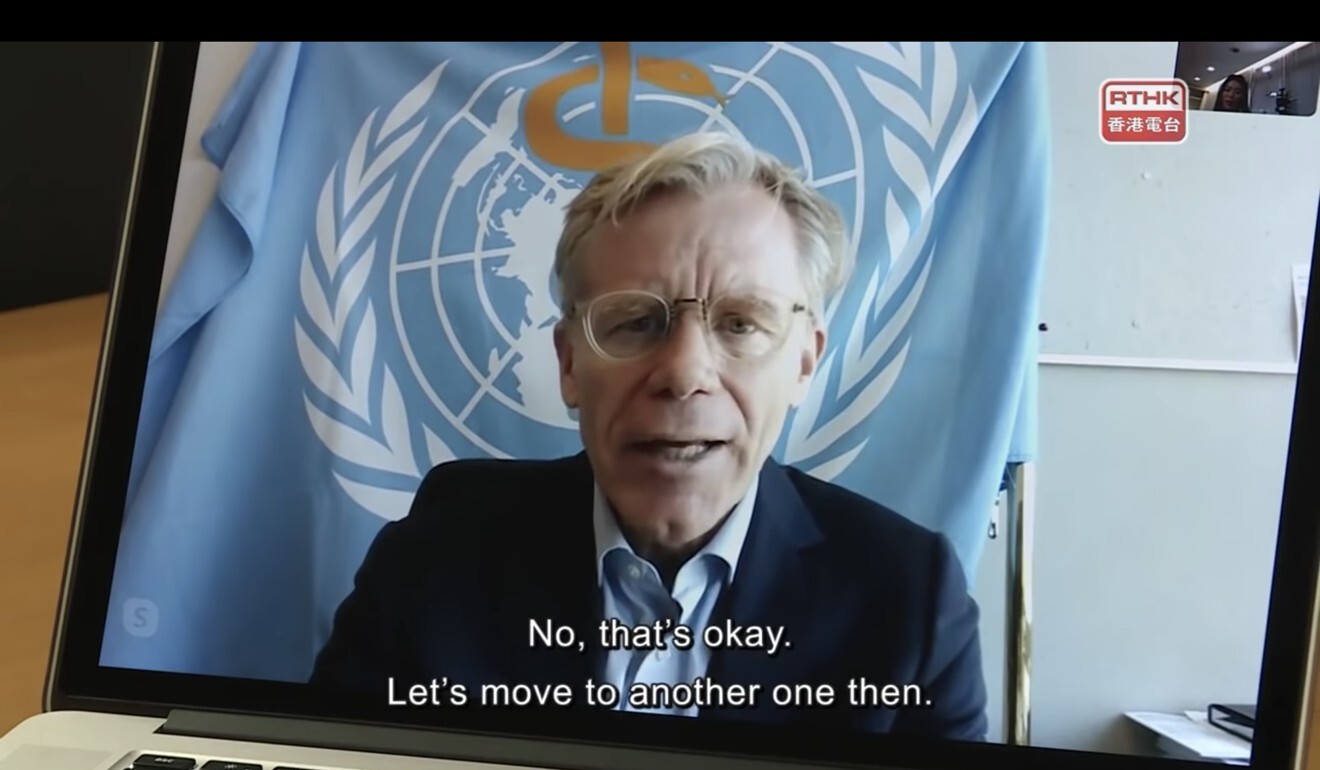
Citing health reasons, deputy head of Hong Kong’s public broadcaster steps down as pressure mounts to toe government line
- RTHK dismisses suggestions the popular Chan Man-kuen left over political concerns, though staff union calls timing ‘uncanny’
- The station, told on Wednesday to provide positive coverage of the national security law, has been at the centre of several programming controversies
The deputy head of Hong Kong’s public broadcaster has quit, citing personal health reasons, amid a growing furore over alleged government interference in its editorial independence.
RTHK on Thursday brushed aside suggestions the departure of Chan Man-kuen, its acting deputy director of broadcasting, was politically motivated. Chan, who is responsible for the station’s overall programme development and oversight, will leave her post on September 1.

But the broadcaster’s staff union called the timing of Chan’s departure “uncanny”, and said they feared it would leave the station ever more vulnerable to attacks. The employees also demanded her successor be chosen from within the RTHK ranks and have a journalistic background, rather than see a civil servant parachuted into the organisation.
Announcing Chan’s resignation on Thursday afternoon, Amen Ng Man-yee, head of the station’s corporate communications and standards department, said Chan told her colleagues about the decision in a staff meeting earlier that day.
Hong Kong’s public broadcaster RTHK ‘must grow viewers’ sense of national identity’
Ng quoted the veteran producer as saying “any work will involve pressure, be it internally or externally” when asked about her health and reasons for leaving. The public relations chief added: “I do think that everybody will have pressure … work and also personal pressure.”
Ng said many section heads expressed sorrow at the news, and thanked Chan for her nearly three-decade tenure, during which she led many departments.
RTHK has recently been embroiled in a series of controversies and is undergoing a review by a newly formed government panel that is looking into its management issues, including financial control and human resources. Its board of advisers is conducting its own concurrent review.
RTHK to undergo management review by civil servants following controversies
The board, composed largely of members from outside the industry, including chairman Eugene Chan Kin-keung, a dentist, held a meeting with director of broadcasting Leung Ka-wing on Wednesday to discuss the station’s editorial principles and programme quality.
Chan said after the meeting that both parties agreed RTHK could educate the public more by producing “positive and responsible” shows promoting the new national security and anthem laws.
The broadcaster is set to produce a 20-episode TV programme exploring the coming security legislation.
Prior to that instruction, the board had set up a working group to ensure the station’s programmes were in line with its governing charter, which requires content to be accurate, impartial and engender a sense of citizenship and national identity.

Another controversy followed in April, when Secretary for Commerce and Economic Development Edward Yau Tang-wah accused RTHK of violating the “one-China” principle, after one of its reporters pressed a World Health Organisation representative on whether the body would accept Taiwan as a member.
Ng revealed that Chan tendered her resignation on June 1, ahead of Wednesday’s meeting with the board, adding that Leung had spent several days trying to talk her out of it before eventually accepting her departure out of respect for her personal wishes.
RTHK apologises to police over satire that portrayed officers as trash, mask hoarders
There would be a “suitable” person to replace Chan in accordance with the station’s operational needs and civil service regulations, Ng said, though she did not comment on whether the successor would be an outside appointee.
Gladys Chiu Sin-yan, chairwoman of RTHK Programme Staff Union, said she respected Chan’s decision, but believed Wednesday’s meeting might have been the final nail in the coffin that hastened her decision to quit.
“Her announcement has followed a series of attacks on the station, and will be a further blow to staff morale,” she said. “Her successor should be someone with journalistic training as the person would have to oversee programme development.”
Hong Kong broadcaster RTHK accused of breaching ‘one-China principle’ after WHO official pressed on Taiwan membership
In 2016, the union publicly protested against what it saw as the delayed promotion of Chan, who was acting assistant director at the time.
Pan-democratic lawmaker Claudia Mo Man-ching, who worked with Chan on the station’s current affairs programme Media Watch before moving into politics, recalled her as a “quiet professional, but never a showboat”.
“She is gentle but firm. She will reason with you, but never raises her voice,” Mo said, adding she believed Chan’s resignation was due to politics, either because she couldn’t stand the political heat any more, or because she refused to compromise the independence of certain contentious programmes like the Headliner.
